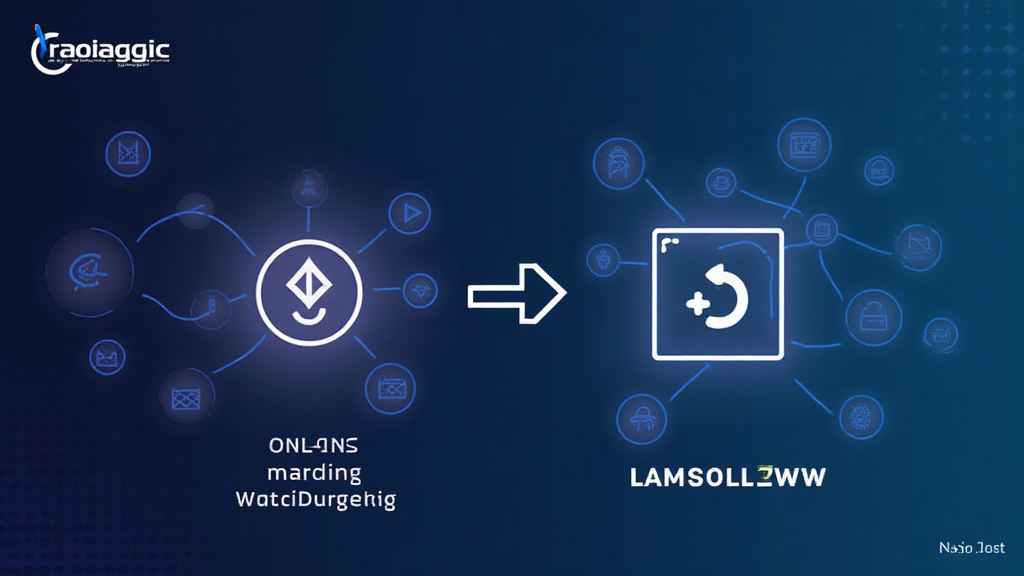Cryptocurrency Payment Gateway Compliance: Secure Your Transactions
In 2024, over $4.1 billion was lost to hacks within decentralized finance (DeFi) protocols. As cryptocurrencies gain traction globally, many businesses are looking to integrate cryptocurrency payment gateways to tap into this growing market. However, navigating the compliance landscape can be a daunting task. This article will break down the key considerations for ensuring compliance with cryptocurrency payment gateways while providing insights relevant to the emerging Vietnamese market.
What is a Cryptocurrency Payment Gateway?
A cryptocurrency payment gateway functions similarly to traditional payment processors but specifically accommodates digital currencies. It enables businesses to accept cryptocurrencies as a mode of payment. A well-implemented payment gateway not only facilitates transactions but also ensures compliance with regulatory frameworks to protect both consumers and merchants.
Importance of Compliance in Cryptocurrency Payment Gateways
- Trust and Credibility: Compliance enhances the trustworthiness of your platform, which is essential in an industry plagued by scams.
- Legal Protection: Adhering to regulations helps avoid penalties and legal issues that could arise from non-compliance.
- Consumer Protection: Compliance ensures consumer safety, promoting a secure transaction environment.
Regulatory Frameworks Around Cryptocurrency Payment Gateways
The regulatory landscape for cryptocurrencies is rapidly evolving. In many countries, including Vietnam, legislation is being introduced to govern how cryptocurrencies can be used and traded. Compliance with regulations like the Anti-Money Laundering (AML) and Know Your Customer (KYC) laws is essential.

Vietnam’s Growing Crypto Market
Vietnam has seen a significant increase in cryptocurrency adoption, with over 5 million users in 2023, a 35% growth from the previous year. As the market expands, the need for compliance with local laws is more critical than ever. In fact, the Vietnamese government is working on a framework that will govern the use of cryptocurrencies and blockchain technologies to ensure that they align with financial regulations.
Key Compliance Measures for Cryptocurrency Payment Gateways
- Implement KYC Procedures: Know Your Customer (KYC) procedures help verify the identities of your customers, reducing the risk of fraud.
- AML Compliance: Anti-Money Laundering regulations require you to monitor transactions for suspicious activity.
- Data Protection: Adhere to data protection regulations such as GDPR, ensuring user information is secured and handled appropriately.
Integration with Traditional Financial Systems
Integrating cryptocurrency payment gateways with traditional banking systems allows businesses to offer users seamless transactions between fiat and digital currencies. However, this integration must navigate existing financial regulations. Blockchain technology can add a layer of security to this integration, but it’s vital to ensure that both sides adhere to compliance standards.
Real-World Examples of Compliance in Action
| Company | Compliance Measures | User Growth Rate % (2023) |
|---|---|---|
| Binance | KYC, AML | 40% |
| Coinbase | KYC, Secure API | 32% |
| LocalBitcoins | Decentralized compliance measures | 20% |
Challenges in Achieving Compliance
Despite the numerous benefits, achieving compliance can pose several challenges, including:
- Keeping Up with Regulations: Since regulations are continuously changing, businesses must stay informed and agile.
- Complex Integration: Seamlessly integrating payment gateways while maintaining compliance can be technically challenging.
- Consumer Awareness: Educating users about compliance measures and their benefits can be difficult, especially in emerging markets.
Best Practices for a Compliant Payment Gateway
To ensure your cryptocurrency payment gateway complies with regulatory requirements, consider implementing the following best practices:
- Regular Audits: Conduct periodic audits to assess compliance protocols and identify areas for improvement.
- Staff Training: Regular training for staff on compliance matters is essential to foster a compliant culture within the organization.
- Utilize Technology: Employ advanced blockchain technologies to enhance security and streamline compliance processes.
The Future of Cryptocurrency Payment Gateways in Vietnam
The Vietnamese government is planning to introduce more structured cryptocurrency regulations by 2025, which could significantly impact how payment gateways operate within the country. As user adoption continues to rise, so will the demand for secure, compliant payment solutions.
Conclusion
In conclusion, compliance in cryptocurrency payment gateways is no longer optional; it is a necessity. As the industry evolves, the importance of regulations will only increase. By implementing robust compliance measures and staying ahead of emerging regulations, businesses can not only protect themselves but also gain consumer trust. Remember, a compliant payment gateway is akin to a bank vault for digital assets, securing both transactions and user information.
For more insights on cryptocurrency regulations and emerging trends, check out hibt.com to stay informed about the evolving landscape.
Cryptocoinnewstoday is your go-to source for the latest news and updates surrounding cryptocurrencies and digital finance.
— Dr. Alex Tran, Blockchain Compliance Expert, published 15 papers on blockchain regulations, led audits for numerous prominent crypto projects.






